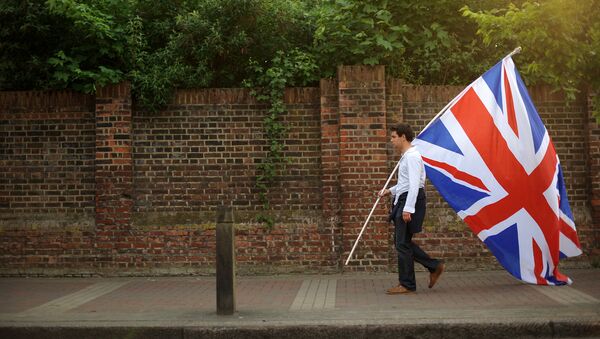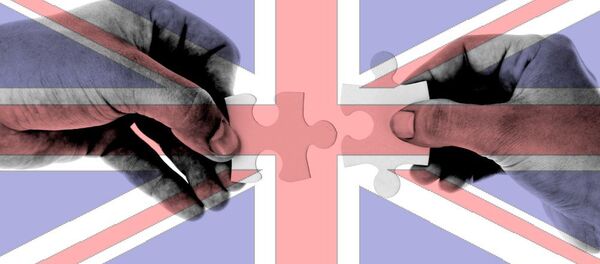The latest statement from Change Britain, a UK organization designed to make Britain's departure from the EU a successful one, challenges the popular opinion shared by many UK MPs that remaining in the customs union is beneficial.
The campaign group state that if Britain decided to leave the customs union, it would be able to secure trade arrangements with eight nations and would be able to negotiate their own deals by exiting the trading bloc.
There are huge opportunities outside the EU's Customs Union! #ChangeBritain #Trade pic.twitter.com/xPzpxZNcy1
— Change Britain (@Change_Britain) 29 December 2016
Change Britain are not the only ones to share this opinion.
In December 2016, the former Bank of England governor, Mervyn King said that Britain should feel "confident" enough to say farewell to the single market and customs union, as it will place the country in a better position economically.
Additionally, Change Britain research showed that the UK will save US$29 billion a year, if the government pursues a 'clean Brexit' and decides to leave the EU's single market and customs union.
The research stated that the Britain would be over US$549 million a week better off through a mixture of taking back control of the money we give to the EU each year, lower regulatory burdens on British businesses and through striking trade deals with growing parts of the world's economy.
"Clean Brexit"
— mike galsworthy (@mikegalsworthy) December 28, 2016
£350m a week!
No, no… £450m a week!
Is that enough? £550?
Wait! I know!
One BILLION pounds a week on hard Brexit for FREE! pic.twitter.com/AR9K8bXwd1
However, Change Britain's optimism is not shared by the UK MPs, former UK Labour leader Ed Miliband, said that the UK should stay inside the EU's single market and customs union even if this means there can only be limited cuts to immigration after Brexit.
These views have also been shared by other UK MPs such as the former Liberal Democrat leader and UK Deputy Prime Minister, Nick Clegg, former UK Conservative minister Anna Soubry and UK Labour MP Chuka Umunna, who all joined forces at an Open Britain event. The politicians warned against pursuing a 'hard Brexit' that would see the UK leave the single market and the customs union.
However, Change Britain are not backing down, as the group have claimed that free trade agreements with countries can be negotiated and the UK does not have to rely on the customs union.
A 2012 study by the European Commission, found that free trade with eight nations and trading blocs including Japan, China and India could create thousands more jobs. Six of the groups highlighted in the 2012 European Commission report have already expressed an interest in free trade with the UK. Change Britain believe that in total, this would generate 387,580 new jobs.
However, economist Jonathan Portes has rubbished the figures, accusing the campaigners of attempting to "distort" the facts.
"Calculating, as Change Britain does, a speculative figure for the number of jobs created by additional exports while ignoring the jobs lost as a result of additional imports is either deeply ignorant or deliberately misleading," Mr. Portes said in an interview.
No Brexiters from @Change_Britain would go on #r4today to talk about their new report. I wonder why. So @jdportes has gone on it on his own pic.twitter.com/OUsJD9uNPF
— Joe Public (@jpublik) January 3, 2017
"Whatever your view on the economics of Brexit, Change Britain are again doing their best to distort the debate," he added.
These latest claims from Change Britain create a convincing argument that Britain could be better off if they left the customs union, showing that perhaps a 'hard Brexit' may not be so bad.
By leaving the EU’s Customs union we could create 400,000 jobs and become a global champion of free trade: https://t.co/B2XA7Cu4sD pic.twitter.com/S8cJDZQ7Sm
— Change Britain (@Change_Britain) January 3, 2017
However, with the Supreme Court yet to rule on whether the UK parliament should have an input in Brexit negotiations, the decisions surrounding the exit may no longer be just in the government's hands.




